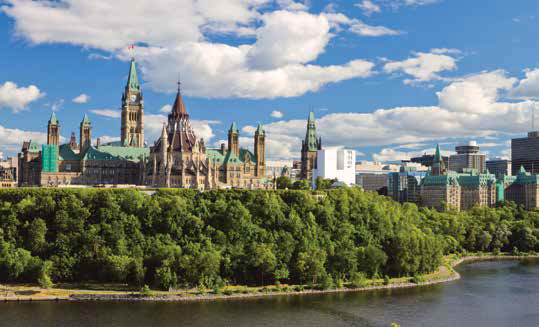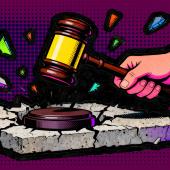
On April 30, 2015, the Supreme Court of Canada released its decision in White Burgess Langille Inman v Abbott and Haliburton. With this decision it is now clear that an expert may be qualified to give expert evidence despite having a pre-existing relationship with one or both of the litigants.
In Burgess, the plaintiff shareholders brought a professional negligence claim against the company’s former auditor. The plaintiffs commenced the action after they retained a different accounting firm to perform various tasks, the results of which revealed several errors in the defendant auditors’ prior work. The defendant auditors brought a motion for summary judgment and, in response, the plaintiffs retained a forensic accountant to prepare a report on her findings.
The defendant challenged the admissibility of this evidence on the basis that the expert who had been retained was a partner at the firm that had revealed the defendant’s alleged errors. The defendant argued that the action came down to a battle of opinions between accounting firms and, because the expert’s firm could be held liable if its approach was not accepted by the court, the expert had a personal financial interest in the outcome of this litigation.
Lower court decisions
The Nova Scotia Supreme Court agreed with the defendant’s position and struck out the expert’s affidavit. The court held that to be admissible an expert’s evidence “must be, and must be seen to be, independent and impartial.” The court concluded that in this instance, the expert’s evidence did not meet this threshold requirement for admissibility because she had a personal interest in the outcome of this litigation.
The majority of the Court of Appeal for Nova Scotia concluded that the motions judge erred in excluding the expert’s evidence. Writing for the court, Beveridge J.A. held that although the court has discretion to exclude expert evidence due to actual bias or partiality, the motions judge erred in holding that an expert “must be, and must be seen to be, independent and impartial.”
Supreme Court decision
On appeal, the Supreme Court of Canada took the opportunity to clarify the test for the admissibility of expert evidence. At the outset, the court stated there have long been concerns about whether expert witnesses are impartial in the sense of expressing their own unbiased opinions and whether they are independent in the sense that their opinion is based on their own knowledge and judgment.
The court went on to state that although there is broad consensus that expert witnesses owe a duty to provide independent and unbiased assistance to the court, there is no consensus on how that duty relates to the admissibility of expert evidence.
The court stated there are two main questions that emerge from this lack of consensus:
Should the expert’s duty of independence and impartiality go to admissibility of evidence?
If so, is there a threshold admissibility requirement related to independence and impartiality?
The Supreme Court answered both questions affirmatively. The test for the admissibility of expert evidence was established in R v Mohan. At the first stage of the Mohan test, the proponent of the expert evidence must satisfy four threshold requirements: (1) relevance; (2) necessity in assisting the trier of fact; (3) absence of an exclusionary rule; and (4) a properly qualified expert. The second stage of the Mohan test requires the trial judge to exercise his or her discretion by balancing the potential risks and benefits of admitting the evidence. This gatekeeper function allows the trial judge to exclude otherwise admissible evidence on the basis that the evidence would have a prejudicial effect on the trial.
The Supreme Court held that concerns related to an expert’s independence or impartiality should initially be addressed under the “qualified expert” element of the Mohan test. The court held that an expert witness who is unable or unwilling to fulfill his or her duty of independence and impartiality is not “properly qualified to perform the role of an expert.”
Once the expert testifies as to his or her duty to the court, the party opposing the admission of evidence has the burden of showing there is a realistic concern as to the expert’s independence or impartiality. If the opponent succeeds in raising this concern, the burden shifts to the party proposing to call the expert evidence to establish the expert’s independence and impartiality on a balance of probabilities. If the party relying on the expert evidence fails to meet this standard, the expert evidence will be ruled inadmissible. The court went on to state that this threshold requirement is not particularly onerous and it will be rare for an expert’s evidence to be ruled inadmissible.
At the threshold stage in the Mohan test, the trial judge must determine — having regard to the circumstances surrounding the expert and the proposed evidence — whether the expert is able and willing to carry out his or her duty to the court.
Continuing its analysis, the court held that a finding that expert evidence meets the threshold stage of the Mohan test does not end the inquiry. Rather, the trial judge must take concerns regarding an expert’s independence and impartiality into account when weighing the evidence at the gatekeeper stage of the analysis. At this point, concerns regarding an expert’s independence and impartiality can be helpful in deciding whether the potential benefits of the expert evidence are outweighed by the potential dangers associated with admitting this evidence.
Application of test to case at bar
Applying the above analysis to the facts in Burgess, the Supreme Court upheld the Court of Appeal decision and concluded that the evidence of the plaintiff’s expert was admissible. The court held that the discovery by one accounting firm of what it believes are errors committed by another firm does not preclude it from offering that opinion as an expert witness.
If the initial inquiry by the proposed expert was conducted independently and impartially, and the proposed witness is able to provide fair, objective and non-partisan assistance to the court, then the expert will satisfy the threshold requirements from Mohan. As for the second stage of the Mohan test, the court held that the record did not support the conclusion that the risk of allowing the plaintiff ’s expert evidence outweighed the benefits of including it.
Takeaway
In the past, many litigants understood that an expert must be completely disassociated from the parties to provide expert evidence to the court. Burgess confirms that is not necessarily the case. However, to do so the expert must establish that (1) his or her duty is first and foremost to the court and (2) the potential benefits of the expert’s evidence are outweighed by the potential dangers associated with admitting such evidence.
The author wishes to thank Jonathan Preece, articling student, for his help in preparing this legal update.
Further Reading
1 White Burgess Langille Inman v Abbott and Haliburton, 2015 SCC 23 [Burgess SCC].
2 White Burgess Langille Inman v Abbott and Haliburton, 2012 NSSC 210 at para 99.
3 White Burgess Langille Inman v Abbott and Haliburton, 2013 NSCA 66.
4 Burgess SCC, supra at para 11.
5 Ibid at para 33.
6 R. v Mohan, [1994] 2 SCR 9.
7 Ibid at pp. 20-25.
8 Ibid.
9 Burgess SCC, supra at para 53
10 Ibid at para 53.
11 Ibid at para 48.
12 Ibid at para 49.
13 Ibid at para 54.
14 Ibid at para 54.
15 Ibid at para 60.
16 Ibid at para 60.




